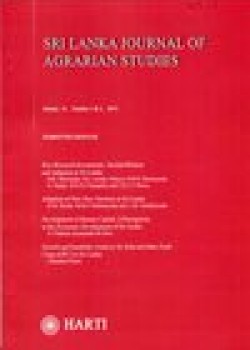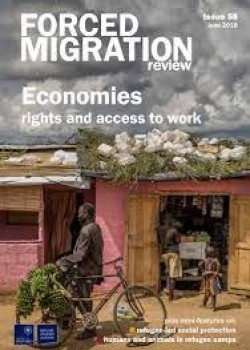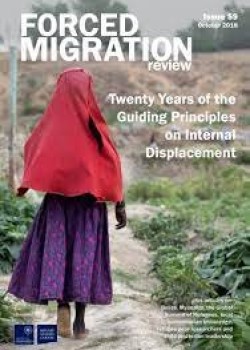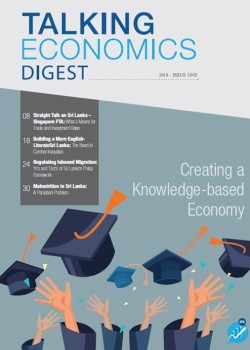
Sri Lankan Journal of Agrarian Studies
Publisher: Hector Kobbekaduwa
Place of Publish: Sri Lanka, Colombo
Year: 2013
Page Numbers: 85
Series: Vol.16, No.01 and 02, New Series, 2013
Acc. No: 369-J
Category: Journals
Subjects: Adult Education
Languages: English
Sri Lanka has shown a significant achievement in rice production leading to the realisation of self-sufficiency. The outstanding performance of the rice sector is mainly attributed to technological advancement and implementation of favourable policies by the Government. Development of improved rice varieties is the major component of this technological change. These improved varieties are now widely adopted by farmers throughout the country. To sustain the productivity growth, it is important that the rice breeding program of Sri Lanka continues to improve rice varieties that are best adapt to field conditions. Analyses of the varietal release patterns and cultivar-specific estimates of area under improved varieties are needed to help design future breeding priorities. This study provides such an analysis using data generated from different approaches including a survey of rice scientists and the expert panel elicitation of cultivar-specific adoption rates. The brief review of trend, government policies and research direction illustrates the growing interest on rice cultivation in varying agro-climatic zones. At present, rice breeders mainly concentrate on varietal development for problem areas, which have potential improvement. The results of expert panel estimation of varietal spread in Sri Lanka were comparable with available secondary information. The expert panel exercise is a cost-effective and a rapid approach in estimating varietal spread which can avoid problems with present lag in data collection process. With a system of collecting varietal adoption data already in place, expert panel elicitation method is useful in verifying accuracy of estimates derived from national surveys. Moreover, timely availability of varietal adoption information is useful in reviewing investment on research and development and setting rice breeding priorities.



